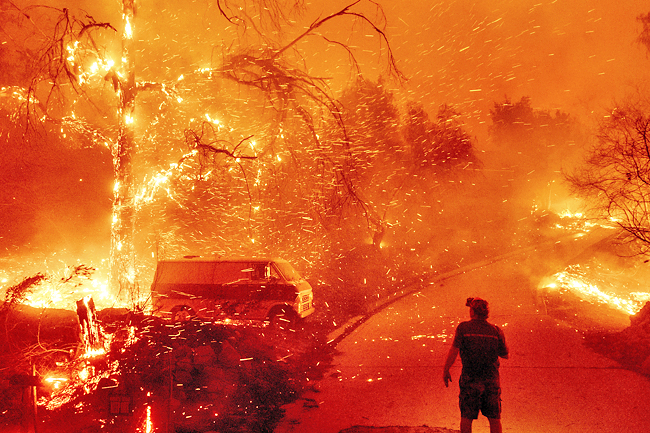WASHINGTON (AP) – Search for the word “climate” on Twitter and the first automatic recommendation isn’t “climate crisis” or “climate jobs” or even “climate change” but instead “climate scam”.
Clicking on the recommendation yields dozens of posts denying the reality of climate change and making misleading claims about efforts to mitigate it.
Such misinformation has flourished on Twitter since it was bought by Elon Musk last year, but the site isn’t the only one promoting content that scientists and environmental advocates say undercuts public support for policies intended to respond to a changing climate.
“What’s happening in the information ecosystem poses a direct threat to action,” said head of climate research and response at the Institute for Strategic Dialogue Jennie King.
“It plants those seeds of doubt and makes people think maybe there isn’t scientific consensus.”

The institute is part of a coalition of environmental advocacy groups that on Thursday released a report tracking climate change disinformation in the months before, during and after the United Nations climate summit in November.
The report faulted social media platforms for, among other things, failing to enforce their own policies prohibiting climate change misinformation.
It is only the latest to highlight the growing problem of climate misinformation on Twitter.
Meta, which owns Facebook and Instagram, allowed nearly 4,000 advertisements on its site – most bought by fossil fuel companies – that dismissed the scientific consensus behind climate change and criticised efforts to respond to it, the researchers found.
In some cases, the ads and the posts cited inflation and economic fears as reasons to oppose climate policies, while ignoring the costs of inaction.
Researchers also found that a significant number of the accounts posting false claims about climate change also spread misinformation about US elections, COVID-19 and vaccines.


















































